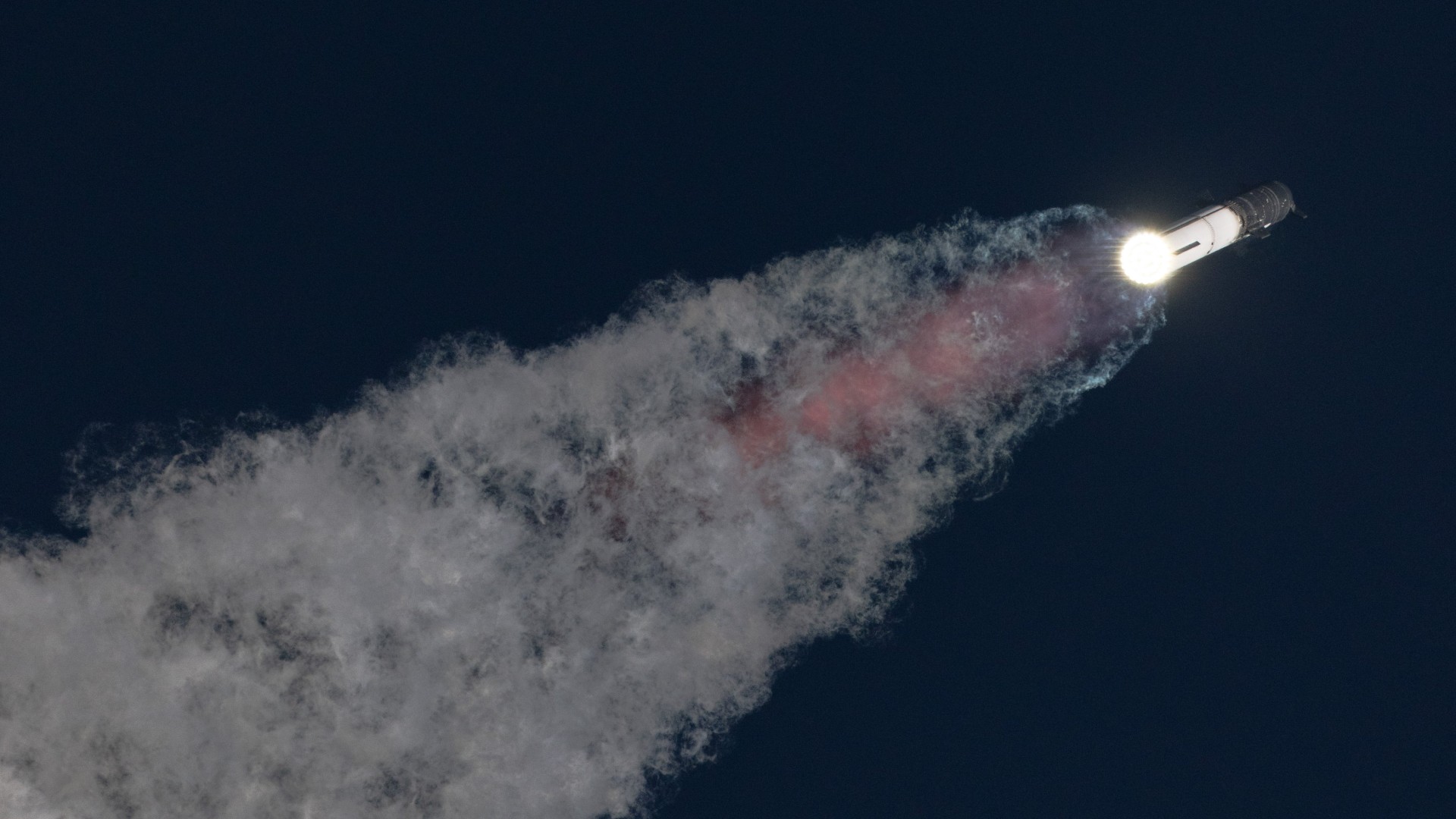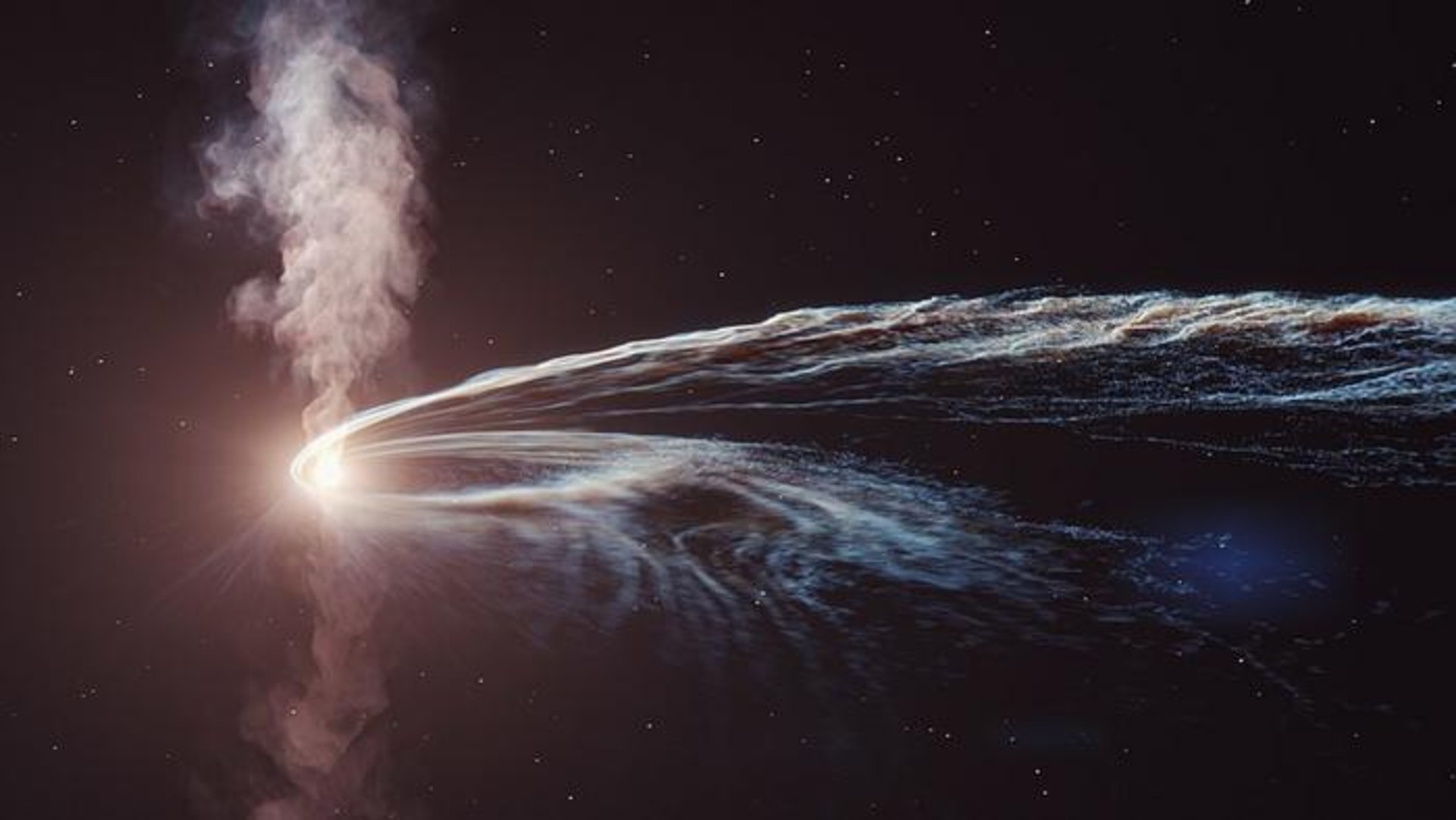FAA to oversee investigation of SpaceX's explosive 2nd Starship flight

Breaking space news, the latest updates on rocket launches, skywatching events and more!
You are now subscribed
Your newsletter sign-up was successful
Want to add more newsletters?

Delivered daily
Daily Newsletter
Breaking space news, the latest updates on rocket launches, skywatching events and more!

Once a month
Watch This Space
Sign up to our monthly entertainment newsletter to keep up with all our coverage of the latest sci-fi and space movies, tv shows, games and books.

Once a week
Night Sky This Week
Discover this week's must-see night sky events, moon phases, and stunning astrophotos. Sign up for our skywatching newsletter and explore the universe with us!

Twice a month
Strange New Words
Space.com's Sci-Fi Reader's Club. Read a sci-fi short story every month and join a virtual community of fellow science fiction fans!
The second-ever test flight of SpaceX's giant Starship rocket has spurred an investigation, just as the first one did.
Starship lifted off from SpaceX's Starbase site in South Texas on Saturday (Nov. 18), kicking off a test mission that aimed to send the vehicle's upper stage most of the way around Earth.
The target was a splashdown in the Pacific Ocean near Hawaii about 90 minutes after launch. But Saturday's flight ended just eight minutes in, with the "rapid unscheduled disassembly" of Starship's upper stage. The U.S. Federal Aviation Administration (FAA) deemed this outcome a mishap and will supervise an investigation into its cause.
"The FAA will oversee the @SpaceX-led mishap investigation to ensure SpaceX complies with its FAA-approved mishap investigation plan and other regulatory requirements," the agency wrote via X on Saturday. There have been no reports of injuries or damage to public property as a result of the flight, the FAA added in another post.
Related: SpaceX's 2nd Starship launch test looks amazing in these stunning photos and videos
The FAA also oversaw the investigation that followed Starship's first test mission, which launched from Starbase on April 20. The vehicle suffered a number of problems on that flight; several of its 33 first-stage Raptor engines conked out early, for example, and its two stages — the Super Heavy booster and Starship upper stage — failed to separate as planned. As a result, SpaceX commanded a detonation of the tumbling vehicle, which occurred four minutes after liftoff.
That launch also damaged some of Starbase's infrastructure, blasting out a crater beneath the facility's orbital launch mount and sending chunks of concrete and other debris raining down on the surrounding area.
Breaking space news, the latest updates on rocket launches, skywatching events and more!
The FAA closed that mishap investigation on Sept. 8, but other regulatory boxes still had to be checked before Starship could fly again. The agency finally granted a launch license on Nov. 15, after it had wrapped up a safety review and an environmental assessment.
It's hard to imagine this second investigation, and the ensuing licensing process, taking so long, because a lot went right on Saturday.
For example, all 33 of Super Heavy's engines lit up upon ignition, and the booster separated successfully from the Starship upper stage as planned. Starship's six Raptors burned for an extended period, taking the spacecraft to a maximum altitude of 91 miles (148 kilometers), according to telemetry that SpaceX provided during its launch webcast. During the April 20 flight, Starship got just 24 miles (39 km) above the ground.
Indeed, SpaceX hailed Saturday's test flight as a success.
"Honestly, it's such an incredibly successful day, even though we did have a rapid unscheduled disassembly of both the Super Heavy booster and the Ship," SpaceX quality engineering manager Kate Tice said during the live webcast. (Super Heavy was supposed to splash down in the Gulf of Mexico about seven minutes after launch, but it exploded shortly after stage separation.)
"That's great," Tice added. "We got so much data, and that will all help us to improve for our next flight."
It's unclear when that next flight will take place; that depends on the outcome of the investigation, and how many adjustments SpaceX may need to make before the FAA clears Starship for liftoff once again.

Michael Wall is a Senior Space Writer with Space.com and joined the team in 2010. He primarily covers exoplanets, spaceflight and military space, but has been known to dabble in the space art beat. His book about the search for alien life, "Out There," was published on Nov. 13, 2018. Before becoming a science writer, Michael worked as a herpetologist and wildlife biologist. He has a Ph.D. in evolutionary biology from the University of Sydney, Australia, a bachelor's degree from the University of Arizona, and a graduate certificate in science writing from the University of California, Santa Cruz. To find out what his latest project is, you can follow Michael on Twitter.
